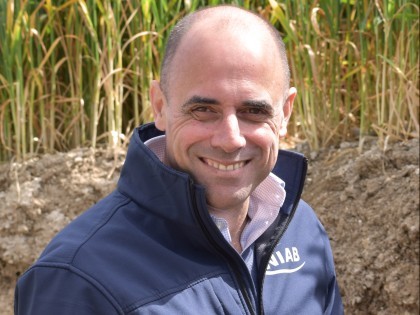United Kingdom
17 Jun 2024

NIAB chief executive Professor Mario Caccamo
A leading UK scientist has called on the next Government to prioritise the introduction of detailed rules which are still needed to implement the provisions of last year’s Genetic Technology (Precision Breeding) Act, and so accelerate the development of crop varieties with increased yields, improved climate resilience and reduced environmental footprint.
Speaking at a Westminster Forum event today (17 June) entitled ‘Next steps for gene edited foods in England’, NIAB chief executive Professor Mario Caccamo explained that, after 10 months’ scrutiny and debate, both Houses of Parliament had approved the Precision Breeding Act in March 2023, providing the legal framework for a faster and more streamlined process to regulate the use of precision breeding techniques such as CRISPR gene editing in agriculture.
This mirrored the approach taken by progressive and well-respected regulatory authorities around the world – including Australia, Canada, Japan, Argentina, USA and Brazil – whose regulations reflect the overwhelming scientific consensus that precision bred products pose no greater risks to human or animal health or the environment than their conventionally bred counterparts, he said.
But Professor Caccamo said it was ‘hugely disappointing’ that the outgoing UK administration had not been able to complete the implementation of its flagship legislation, and warned that, without the secondary legislation needed to implement its provisions, the Act remains an empty shell and serves no functional purpose.
Professor Caccamo noted that Defra and FSA officials had worked hard to prepare the necessary implementing rules, which were notified in draft to the World Trade Organisation (WTO) in April, with an expectation that they would be introduced to Parliament in July. But he added that the ‘unexpected hiatus’ caused by the decision to call an early General Election must not be allowed to derail progress.
“Investors and developers are queuing up to bring forward exciting innovations which will support more sustainable and productive farming systems, such as US food group JR Simplot Co, whose gene edited strawberries bear fruit for three times as long as their non-edited equivalents, producing up to five times as much fruit per plant. The berries also have a longer shelf-life, significantly reducing the potential for food waste. Or their CRISPR-edited baby new potatoes with bunched tuber architecture, concentrating the same amount of production on around a third of the land area previously required.
“But if these precision breeding innovations were brought forward today, the reality is that they would still be regulated as GMOs because the necessary implementing rules are not yet in place,” he said.
“It is therefore imperative, and a matter of priority, that the next administration brings forward the necessary secondary legislation at the earliest possible opportunity, paving the way for England to become a leader in sustainable crop innovation.
“These techniques can support faster access to genetic improvement, ensuring our farmers have the tools they need to be more climate resilient, to increase productivity while reducing inputs, while at the same time providing new solutions for safer, healthier eating, and reduced food waste.
“I would strongly encourage crop scientists, farmers, plant breeders, environmentalists and all those with an interest in freeing up the using of these exciting new technologies to make that point clearly and unequivocally to Ministers and their elected representatives in the next administration.
“The sooner the secondary legislation is in place, the sooner these innovations can be available on-farm, and delivering tangible benefits to producers, consumers and the environment,” concluded Professor Caccamo.